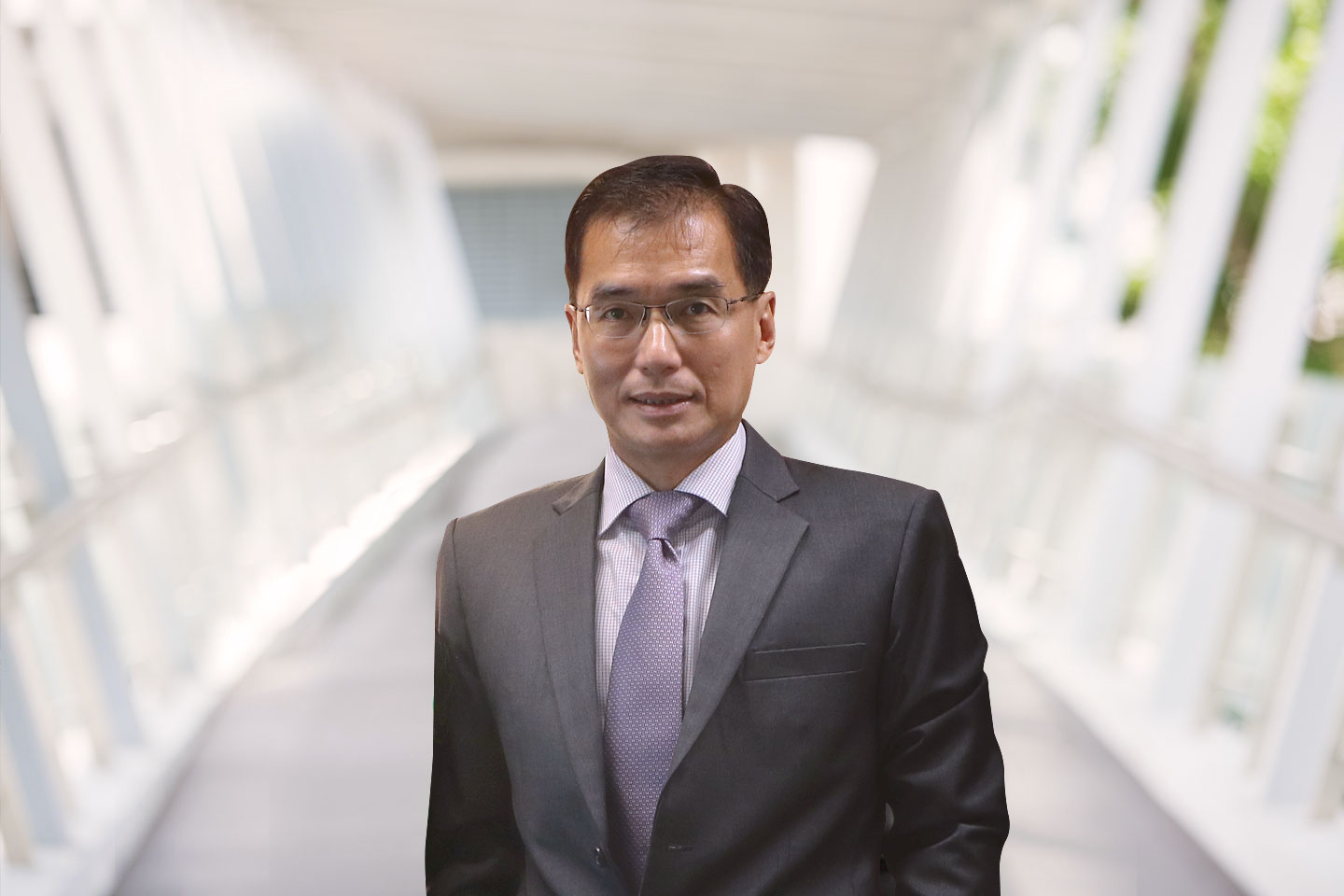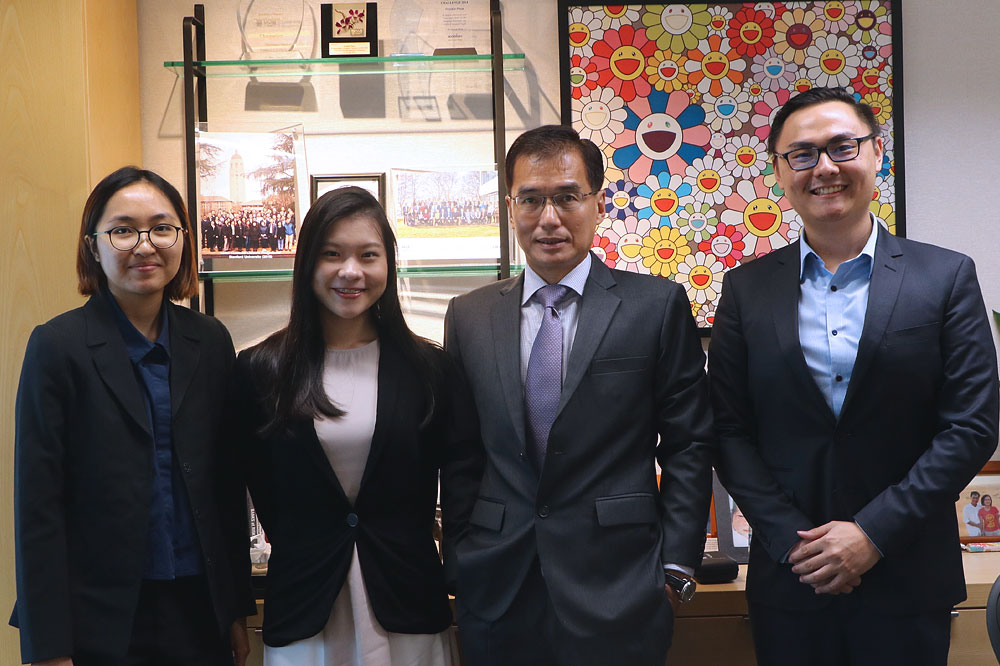As the Managing Director and Head of Group Risk Management for UOB, Frankie oversees all risk management matters for the group including credit risk, market risk, balance sheet risk, operational risk, fraud, product control and model validation. Previously, he spent more than 10 years as a corporate and investment banker at international banks.

Alumni Spotlight Stories: Frankie Phua

Frankie, a seasoned credit risk practitioner, is an active contributor to the risk management community. Currently he is Chairman and a Director of the Board of the Singapore Chapter of the Risk Management Association (RMA), an organization associated with RMA USA. Regionally, he has also conducted credit risk training for banks in Cambodia, China, Hong Kong, Laos, Myanmar, Taiwan and Vietnam. Furthermore, Frankie was conferred the IBF Fellow Award in Risk Management, an award that recognises the mastery and leadership in his profession, and commitment to industry development.
Q: Could you tell us more about your experience in credit risk management and what a normal working day is like for you?
Banking is a risk-taking business. We make money by taking risks. Therefore, the problem banks must solve is how to address risk. In risk management, we must ensure that we make more gains than losses on average.
A usual day in my life starts at 7am. 7am to 9am is the period when I am the most productive. My colleagues will come in to discuss certain issues at this timing. After 9am, I would go for meetings, then have a very quick lunch right after, before returning to work. Also, I always try my best to go home by 6pm in the evening. When I get home, I change into my jogging attire to go for a run. Staying healthy is very important to me.
Q: Throughout your career path in banking, what are some of the significant transitions and struggles you have experienced?
When I started work before the Asian financial crisis, the market was in a boom. Then, the banking outlook changed after the crisis – I realized a job in banking can be very uncertain. I thought about what else I could do besides banking in the frontline. That was when I thought about risk management and how it would play an important role in the banking frontline. I believed that my experience in the frontline would help my career in risk management and decided to make a switch.
It is therefore important that we constantly learn new skills and acquire new knowledge to stay relevant in this industry.
I feel that whenever one leaves a company, never burn bridges because you never know when you might go back to the company. Burning bridges only reflects badly on yourself. Never blame other people for the negative things that happen to you. Winners will always try to understand others and learn about their own weaknesses; while losers will always try to push the blame to others.
Besides maintaining healthy relationships with people, always stay positive when problems occur. When you mix with negative people, just understand how they think but do not be influenced by them. I truly believe negativity is what holds most people back.
Q: What challenges in the banking industry do you foresee in the coming decade?
Banks will still be around because they are important financial intermediaries. We feel safe to put our money with banks. Banking will always stay because of the trust forged between banks and the people. However, a lot of jobs at banks may not be around. There will be more demand for people who know how to work with Fintech because they can identify new opportunities. It is therefore important that we constantly learn new skills and acquire new knowledge to stay relevant in this industry. We cannot be complacent. We must have a lifelong learning attitude.
Q: Do you think it is good to have a mentor to help give advice on your career path?
I think getting advice is always good and one will be very lucky to have a good mentor who provides guidance. But most of the time you must rely on yourself. Most bosses are busy and might not have time for you. It is important to manage your own career path.
To manage your own path, I think having good reading habits is very important. When I was in the US for a leadership course earlier this year, I met a guy who said he reads 100 books a year to get a sense of what is happening in the world. That is how important reading is.
Besides reading, see why certain people are more successful and try to learn from them. We must mix with the right people. If you hang out with less driven people, you will naturally not be so ambitious.
You need to be good in both technical knowledge and emotional intelligence so that you can go far in life.
Q: How would you advise undergraduates who are seeking a career in credit risk management?
Risk management requires a lot of technical knowledge. You should be academically inclined since there are a lot of mathematical formulas to deal with. We must have an intuitive understanding of the formulas. Technical skills, while necessary, is not adequate. To do well in your career, we must know how to effectively engage our seniors. You need to be good in both technical knowledge and emotional intelligence so that you can go far in life.
We must always have good emotional intelligence. Your problem is the same as the problems others face. High emotional intelligence and proactiveness should come together. For instance, whenever you go to your boss, never approach him or her with a problem – propose solutions and ideas to discuss with your boss.
Good communication skills are also necessary. You must be able to communicate complex theories in layman terms that others can understand. Risk management is too quantitative nowadays and it is tough for some to understand.
Q: Can you elaborate more about how emotional intelligence plays out in your job?
For instance, people may resist your ideas because they don’t understand the big picture. We need to deal with resistance both from the ground and the top. Getting people’s buy-in is an art, not a science. We must learn how to win friends and influence people. It is always important to understand what motivates them if we want to win them over. Imagine whose support you would need to have to further your project and work towards gaining their support. Next, it is always good to socialize before presentations. Build relationships with these people and do not take them for granted.
Q: If you could turn back the clock, what things would you have done differently?
All these years, I have always maintain high standards at work. Colleagues may sometimes find it very difficult to work with me. Looking back, what I could have done better is to recognise and accept that everyone is different. I would like to treat everyone as my family because life is not just about work.
The Alumni Spotlight Stories is a weekly series that explores a Bizad alumni’s journey from school to the working world. The story was first published in “Alumni Spotlight Stories: From Student Life to the Peak of your Career” compiled by the NUS Business School Alumni (NUSBSA).



